Eating These 12 Foods Can Burn Belly Fat Fast, Nutritionists Say

For many people striving to lose weight, shifting the scale is all about fitting into a particular pair of jeans or liking the reflection in the mirror. Yet experts say that losing inches in your midsection has benefits that go more than skin-deep—which is why they’re sharing 12 foods that burn belly fat.
As Cleveland Clinic explains, your stomach may contain two types of fat—subcutaneous fat that lies just beneath the skin (“the kind that you can pinch”) and visceral fat, which lies behind your abdominal walls. The latter “surrounds your stomach, liver, intestines and other organs,” and in excess, it “can lead to serious health issues such as diabetes, heart disease and stroke,” they explain.
Additionally, Nancy Mitchell, RN, a registered nurse working with the Assisted Living Center, explains that visceral fat can also wreck your metabolism: “Fat is the storage site for hormones; so the more fat stored in the abdomen, the more hormones available to be secreted into the bloodstream. This often causes hormonal imbalances and metabolic havoc in the long run.”
To keep yourself healthy and get some abs along the away, read on to hear from nutritionists about the best foods to eat for burning belly fat.
RELATED: This Food Can Trigger a 15% BMI Weight Loss—But You’re Probably Not Eating It.
1
Leafy greens
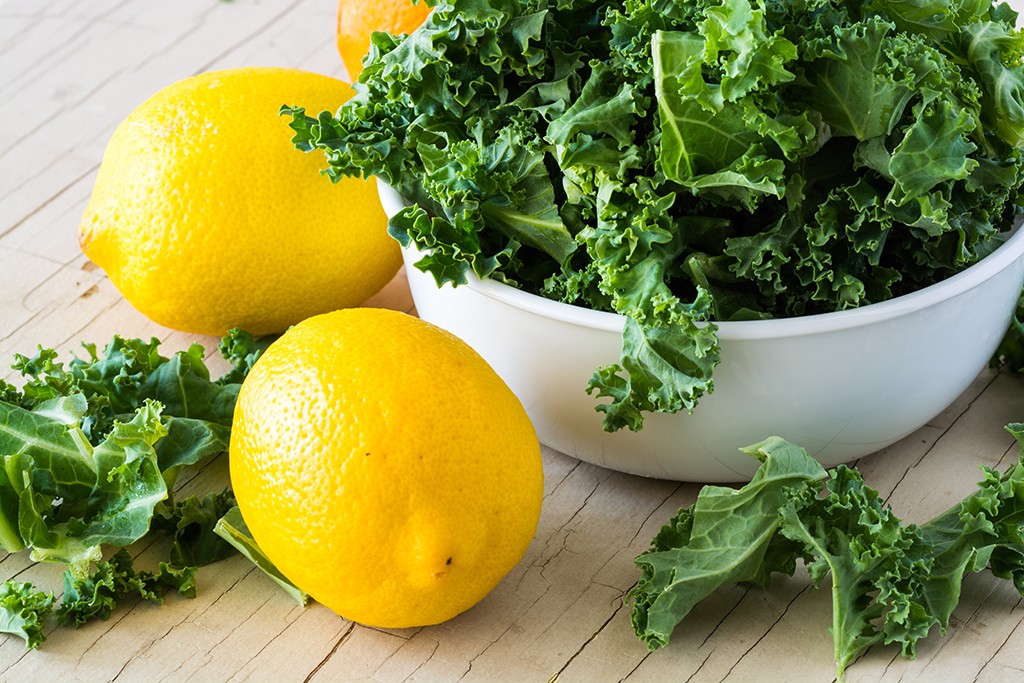
Leafy green vegetables are full of vitamins and minerals that pack a major nutritional punch. Besides being great for your overall health, they can also help curb your appetite and flatten your belly.
“Foods like spinach, kale, and Swiss chard are low in calories but loaded with fiber, which helps keep you feeling full,” says Andrew White, CPT, a certified personal trainer, fitness expert, and co-founder of Garage Gym Pro. “This can prevent overeating and snacking on higher-calorie foods.”
To enjoy optimal benefits, White recommends aiming for at least three cups of leafy greens per day.
2
Cottage cheese
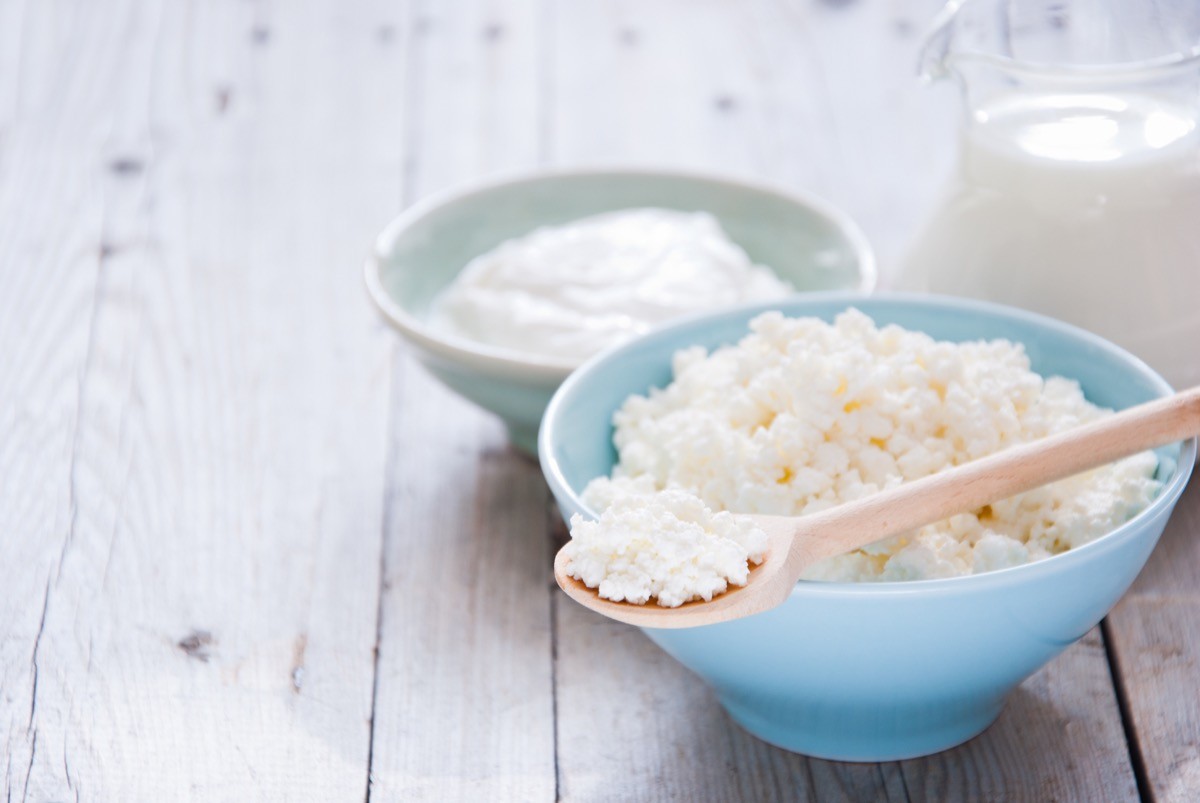
In a viral TikTok video, Gerard Hall, a fitness coach and influencer, says cottage cheese is a great flat-belly bedtime snack because “it has no carbohydrates and it provides a long-acting protein called casein.”
According to Cleveland Clinic, casein offers several under-the-radar benefits. In addition to all of the standard perks of protein—like reduced hunger and increased muscle growth—casein is comprised of all nine essential amino acids and is a solid source of bone-strengthening calcium.
In speaking with Best Life previously, Angel Luk, RD, a registered dietitian and co-founder of FoodMysteries.com, suggested using cottage cheese “to substitute higher fat cheeses such as ricotta in recipes such as lasagna.”
3
Legumes

Legumes are another great source of protein and fiber.
“Beans, lentils, and chickpeas are lunchtime heroes, whether tossed in a salad or pureed into a dip,” says Tamba Monrose, CN, an MIT-educated chemical engineer and ISSA-certified trainer and nutritionist. “They’re a powerhouse of fiber and vitamins that can stabilize blood sugar, combat hunger pangs, and support muscle maintenance, all contributors to a flatter abdomen.”
To reduce fat accumulation around the belly, White suggests including half a cup or 100 grams of cooked beans, lentils, or peas in each meal.
RELATED: Certain Foods Trigger Natural Ozempic-Like Weight Loss Effect, Doctor Says.
4
Eggs
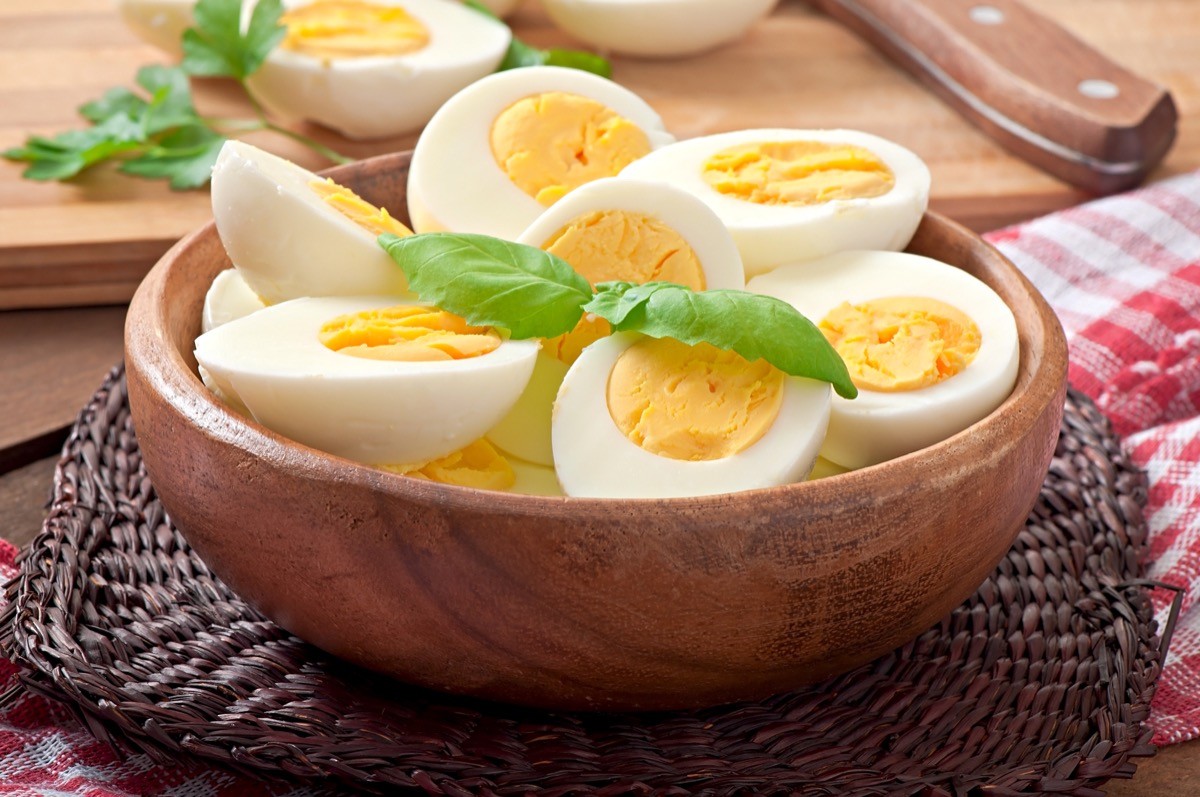
Looking for a breakfast food that will bust belly fat fast? Start the day with eggs. “
Their high protein content sets the tone for sustained energy,” Monrose notes. “Whether it’s a veggie-filled omelet, a soft-boiled egg atop whole grain toast, or a quick scramble, eggs are a versatile choice that pairs well with countless ingredients and helps prevent mid-morning cravings.”
Krutika Nanavati, RDN, a registered dietitian and a medical advisor at Clinicspots, adds that “eggs are a great source of protein, which is known to boost metabolism and aid in fat loss.”
This also makes them a great snack to have on hand.
“If you have a hard time controlling your hunger, you should always keep some hard-boiled eggs stored in your refrigerator,” Hall recommends. “Each time you get hungry, and it isn’t mealtime, just grab an egg or two and just eat the egg whites. The egg whites barely have any calories [but] will fill you up.”
5
Lean meats and fish
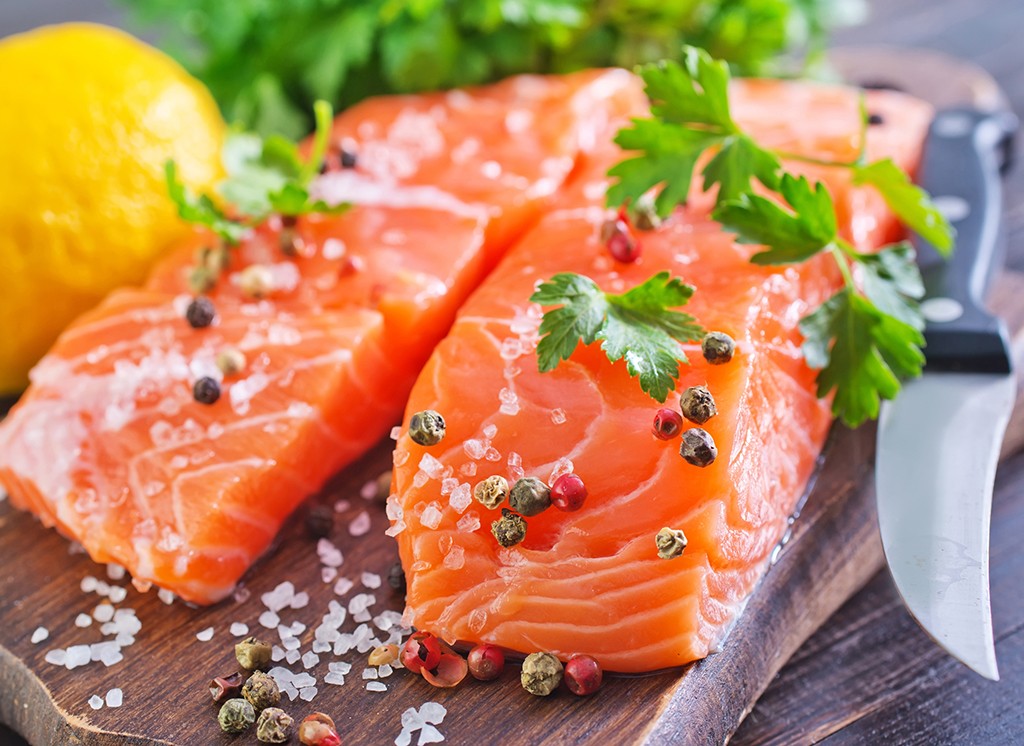
Eating lean sources of protein can also help you drop unwanted pounds.
“Chicken breast, turkey, and fish like salmon not only help you feel satiated but also have a high thermic effect, meaning your body uses more energy to digest them. This can increase your metabolic rate and help with weight loss,” explains White.
However, he notes that many people overestimate how much protein they need: “For lean proteins like chicken, turkey, and fish, a standard serving size is about three to four ounces per meal, which is roughly the size of a deck of cards or the palm of your hand.”
6
Whole grains
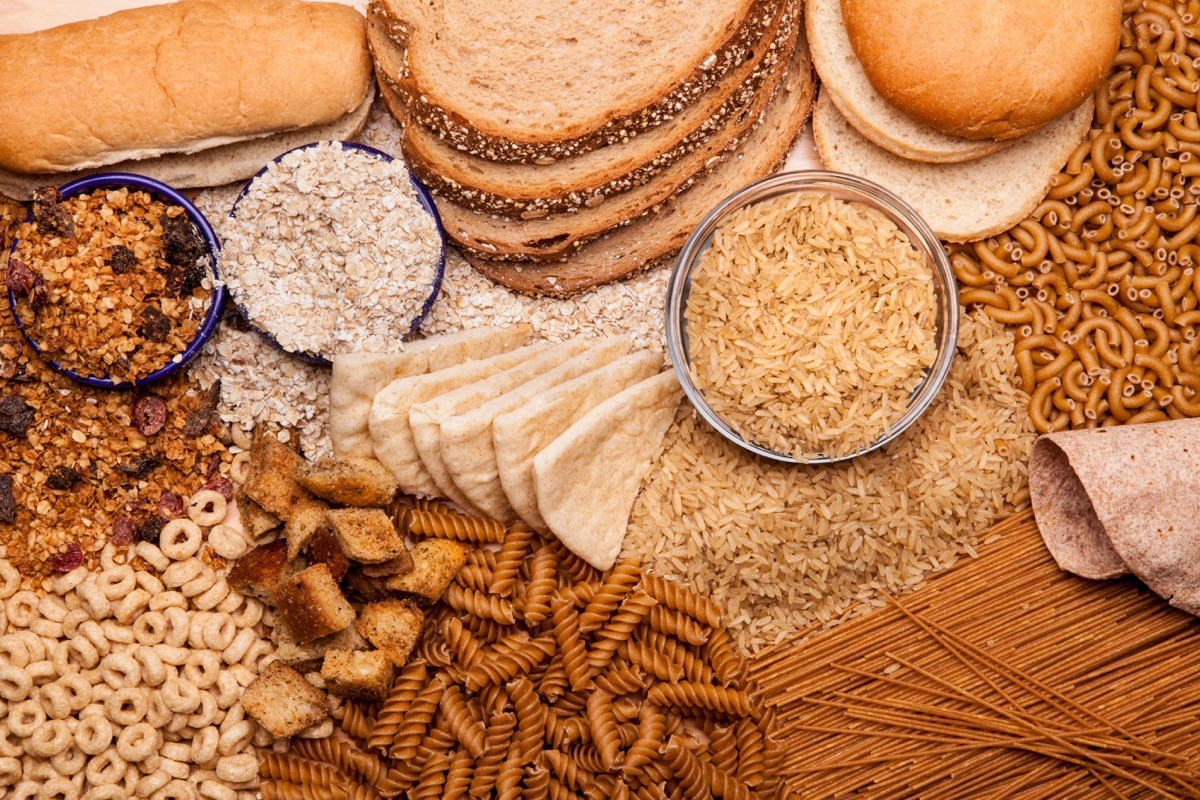
Filling up on healthy and hearty whole grains can also help you lose belly fat.
“Whole grains, such as quinoa, brown rice, and oats, have a low glycemic index, which means they don’t spike your blood sugar as much as refined grains,” White explains. “This steadier blood sugar helps control appetite and delays hunger cues.”
RELATED: 7 Supplements That Can Help You Lose Weight, Doctors Say.
7
Nuts and seeds
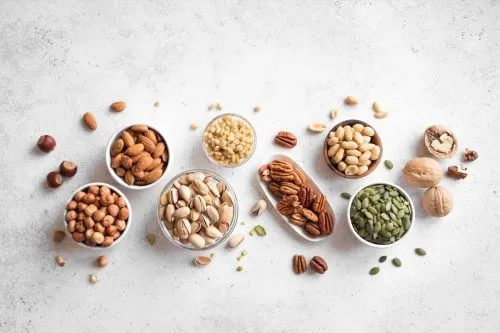
Looking for a hunger-busting snack that will keep you fuller for longer? A small handful of nuts or seeds should do the trick.
“Almonds, chia seeds, and flaxseeds contain healthy fats and protein, which are essential for weight management. They’re energy-dense and nutrient-rich, providing antioxidants that can help reduce inflammation,” White says.
However, it’s important to note that it’s easy to go overboard with these calorie-dense snacks. White recommends limiting your intake to about one ounce of nuts or seeds per day to keep your calorie intake within a healthy range.
8
Natural peanut butter

Speaking of nuts: Nothing fills you up faster or keeps you fuller longer than peanut butter. That’s in addition to the generous protein-to-calorie ratio, which makes it a great snack or addition to your breakfast.
“Two to three spoonfuls of natural peanut butter should be enough to take away the hunger until mealtime,” Hall notes.
You’ll just want to be extra careful about ensuring you only get the natural kind of peanut butter. Check the ingredients list for unhealthy additives like salt, sugar, or palm oil.
9
Berries

Another nutrient-packed superfood, berries can also help flatten your belly.
“Berries are nature’s candy, perfect for snacking, as a dessert topping, or blended into smoothies,” says Monrose. “Their fiber content aids in fullness and digestive health, while their antioxidants can help reduce inflammation, which is often associated with weight gain and bloating.”
RELATED: If You Want to Lose Weight, “Avoid These Foods Like the Plague,” Fitness Expert Says.
10
Avocados
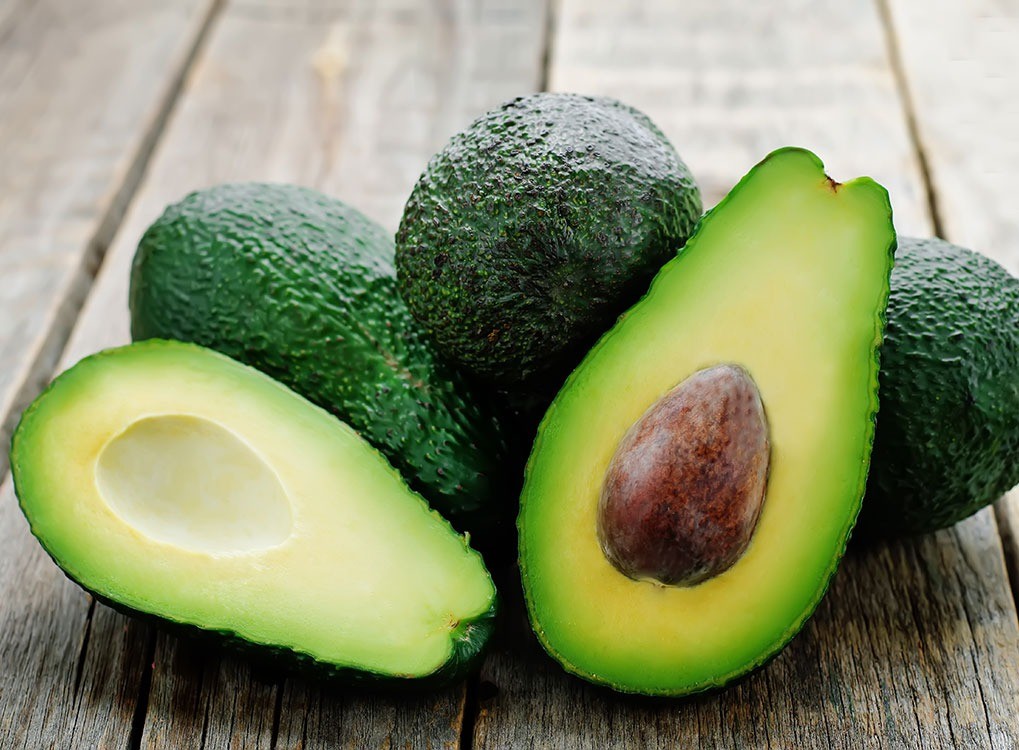
Rich in fiber and healthy fats, avocados can help fill you up and curb your cravings for less healthy foods.
“Avocados are rich in monounsaturated fats, fiber, and potassium, all of which target visceral fat, linked to diabetes and heart disease,” Nanavati says.
11
Probiotic-rich foods
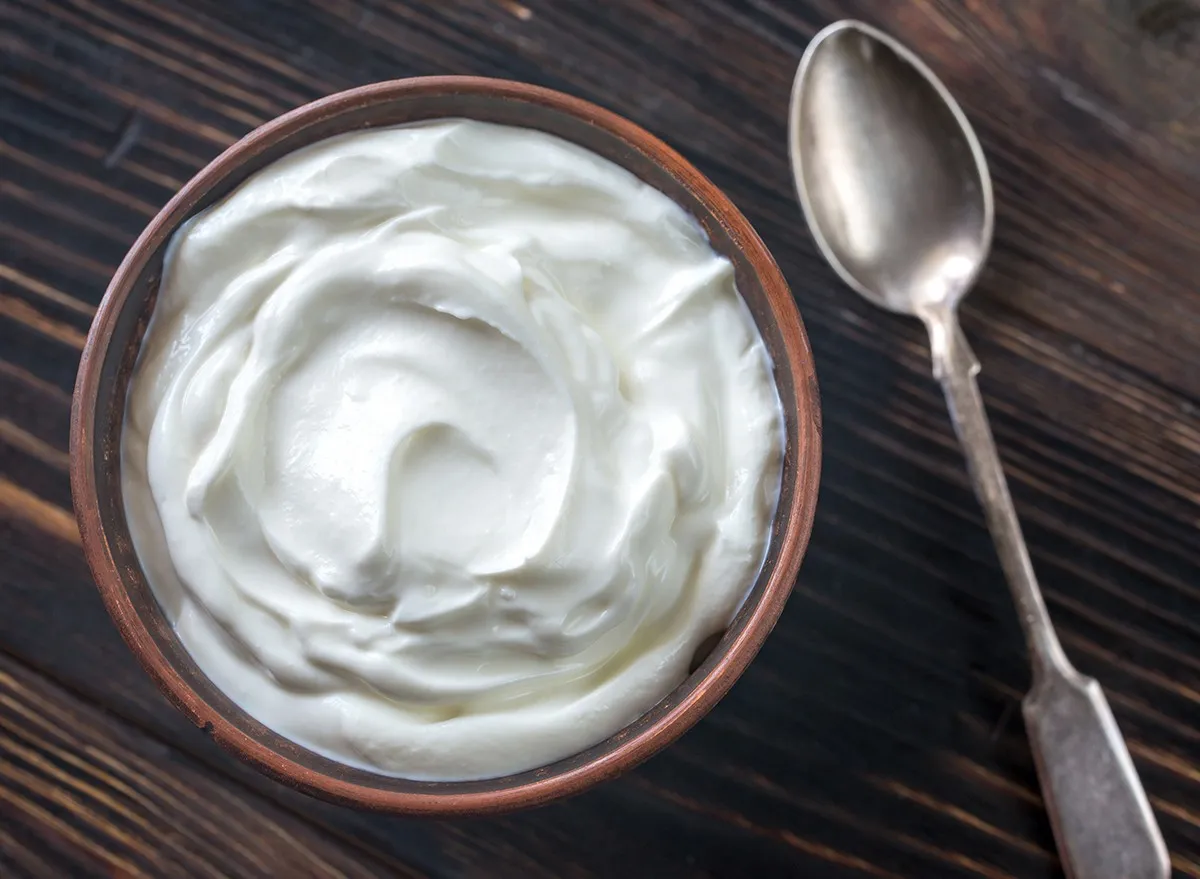
Next, White recommends eating probiotic foods, which he says can help you lose belly fat and reduce belly bloating.
“Yogurt, kefir, and sauerkraut are rich in probiotics, which help in maintaining a healthy gut. A well-functioning digestive system is crucial for weight loss and can prevent bloating that makes the belly look larger,” he explains.
In particular, Monrose recommends unsweetened Greek yogurt: “A perfect post-workout or afternoon snack, Greek yogurt can be transformed with the seasons—mix with cinnamon and apples in the fall or fresh berries in the summer. It’s not only rich in protein but also contains probiotics that aid gut health, crucial for a flat belly.”
12
Green tea
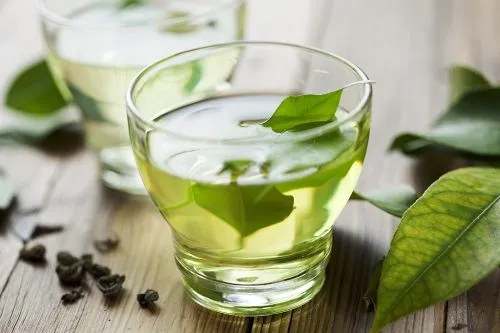
Research suggests that drinking green tea can help protect cognitive function, prevent certain types of cancer, help manage blood sugar, and more, thanks to its ample antioxidants. As if you needed another reason to add it to the menu, it may also help burn belly fat and accelerate weight loss.
“Green tea is widely known for its ability to boost metabolism and burn fat, especially in the belly area. This is due to the presence of a powerful antioxidant called EGCG,” Nanavati explains.